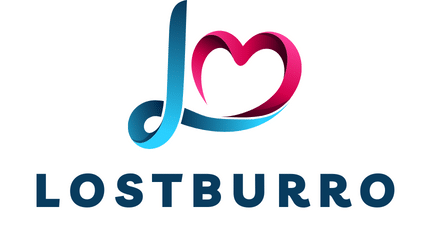How Can Ultrarunners Effectively Manage Sleep Deprivation During Multi-Day Races?

Sleep deprivation is a commonly recognized challenge in endurance sports, especially ultra-running. In the world of ultramarathons, which are races that exceed the traditional marathon length of 26.2 miles, athletes often find themselves running for multiple days at a time with little to no sleep. This can take a toll on their performance and health, yet it’s an inherent part of the sport. This article will delve into the strategies ultrarunners can adopt to manage sleep deprivation during these grueling races.
Understanding the Impact of Sleep Deprivation on Performance
Before delving into the strategies for managing sleep deprivation, it’s crucial to comprehend its impact on an ultrarunner’s performance. Sleep plays a significant role in the body’s recovery process and maintaining cognitive function. When you don’t get enough sleep, it can affect your response time, decision-making skills, and mental alertness – all crucial elements in a race that demands endurance.
A research study by Google Scholar found that athletes who had less than six hours of sleep before a race had slower split times compared to those who slept for longer. Moreover, sleep deprivation can also increase the risk of injuries and reduce the immune system’s efficiency, making it challenging for athletes to recover after the race.
The Role of Training in Managing Sleep Deprivation
Training is an essential facet of preparing for an ultramarathon, and that includes training your body to function on minimal sleep. The DOI University’s study on endurance athletes suggests that integrating sleep deprivation into your training regime can help your body adapt to the lack of sleep during the race.
For instance, some runners practice "night runs" that mimic the race’s timing and conditions. This can condition your body to stay awake and active during the usual sleeping hours. Additionally, training for longer hours without sleep can help your body adapt to the energy requirements and help you better manage fatigue during the race.
Timing & Planning Rest Periods for Optimal Performance
It’s unrealistic and unhealthy to expect your body to run for several days without any rest. Thus, strategic planning of rest and sleep periods plays a pivotal role in managing sleep deprivation during ultramarathons.
Runners can use a variety of strategies to plan their rest periods. Some prefer to run for a certain number of hours, then sleep for a short while, repeating this cycle throughout the race. Others might opt to run for as long as they can, then sleep until their body is ready to run again. There’s no one-size-fits-all strategy, as sleep requirements can vary greatly among individuals.
Nutrition’s Role in Combating Sleep Deprivation
While sleep and training are critical, nutrition also plays a vital role in combating sleep deprivation. Consuming the right nutrients at the right time can provide your body with the energy it needs to stay active for longer periods, reducing the need for sleep.
For instance, consuming slow-releasing carbohydrates during the race can give your body a steady energy supply, helping you stay awake and alert for longer. Additionally, staying hydrated can prevent fatigue and improve cognitive function, helping you maintain focus during the race.
Leveraging Technology to Manage Sleep Deprivation
With the advancement of technology, there are now tools and apps designed to help athletes manage their sleep and performance. For instance, there are smartwatches that can track your sleep patterns and alert you when your body needs rest. There are also apps that can help you plan your rest periods based on your body’s natural circadian rhythm.
In conclusion, managing sleep deprivation during an ultramarathon is a multifaceted process that requires a combination of effective training, strategic planning, proper nutrition, and the smart use of technology. By adopting these strategies, ultrarunners can enhance their performance and health in these extreme endurance events.
Sleep Extension: A Pre-Race Strategy for Ultramarathoners
Preparation for any major race doesn’t start a day or two before the event. It requires weeks, sometimes months, of physical and mental conditioning. Sleep extension, an act of increasing sleep duration before the race to create a "sleep bank," can be a beneficial strategy for ultramarathon runners.
The concept of sleep extension has been studied extensively, including in a research published on Google Scholar. This study revealed that runners who extended their sleep duration for several weeks before a race experienced fewer injuries and improved performance during the race.
However, like any other strategy, implementing sleep extension needs careful planning and consistency. It’s not about sleeping excessively one or two nights before the race. Instead, it involves gradually increasing your sleep duration over an extended period, preferably starting several weeks before the race. This gradual increase allows your body to adjust to the new sleep pattern and prevent the feeling of grogginess which can occur when you suddenly alter your sleep patterns.
Moreover, sleep extension should be paired with good sleep hygiene. This entails practicing habits that promote quality sleep, such as maintaining a regular sleep schedule, creating a sleep-friendly environment, and avoiding caffeine or heavy meals close to bedtime.
The Power of Napping as a Sleep Strategy During Ultramarathons
When it comes to multi-day races such as ultramarathons, finding the time or place for a full sleep cycle might not always be feasible. This is where napping comes into play as a powerful sleep strategy.
Napping provides a way for runners to get a quick energy boost during the race. Even a brief nap can enhance alertness, mood, and cognitive performance. A study by DOI PubMed indicates that even short naps of 10 to 20 minutes can improve an ultramarathoner’s performance.
However, to reap the benefits of napping during ultramarathons, runners need to understand their personal sleep patterns and plan their naps strategically. The timing of the nap is crucial. Napping too close to the usual nighttime sleep can disrupt the sleep cycle, leading to insomnia or poor quality sleep.
Additionally, the nap’s duration is equally important. Short power naps of 10 to 30 minutes can refresh the mind and body without leading to grogginess. On the other hand, longer naps of 60 to 90 minutes allow for a complete sleep cycle, which can enhance creativity and procedural memory.
Conclusion
Managing sleep deprivation during ultramarathons is a complex yet critical aspect of these ultra-endurance events. Incorporating sleep extension into pre-race preparations can optimize performance by building up a sleep reserve. Meanwhile, the strategic use of napping as a sleep strategy during the race can provide the necessary boosts of energy and alertness. Combining these methods with other strategies, such as proper training, nutrition, and the use of technology, can equip ultramarathon runners with the tools they need to conquer both the miles and the sleep deprivation that these events entail.
